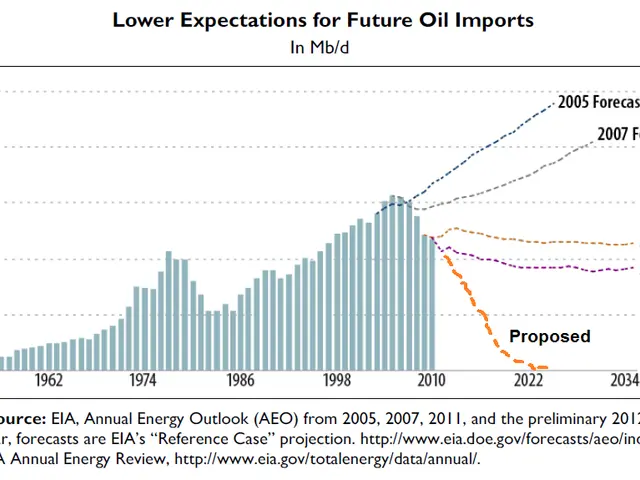Purchasing Amazon Shares Today Could Potentially Propel Your Life Forward?
Amazon (AMZN dropping 1.45%)** has made a name for itself as one of the top-performing stocks of all time, boasting gains over 200,000% since its debut in 1997 through an Initial Public Offering (IPO). A mere $1,000 investment back then would now be worth over $2 million.
Early investors who held onto this stock have experienced phenomenal returns. Amazon carved a niche for itself and dominated in two substantial sectors: e-commerce and cloud computing. This success paved the way for the development of high-profit ventures such as advertising, its third-party marketplace, and Amazon Web Services (AWS), its cloud infrastructure service.
Remember, past achievements do not guarantee future results in the stock market, though. Still, is Amazon prepared to set you up for life financially? Let's delve deeper.
Current Outlook for Amazon
For the majority of its existence, Amazon consistently grew its revenue by at least 20% every quarter. However, these growth days appear to be in the past, as the company has reached maturity. Amazon now holds the title of the second-largest company by revenue globally, surpassed only by Walmart, and is projected to generate $638 billion this year.
During the third quarter, Amazon's revenue increased by 11% to reach $158.9 million. Over half of its revenue originated from its North America segment (primarily e-commerce).
Since the end of the pandemic, Amazon has settled into an annual growth pattern of around 10%, shifting its focus from revenue growth to enhancing margins. For instance, Amazon has included advertising in Amazon Prime and introduced new fees for third-party sellers, bolstering its control over an already dominant market. Additionally, the company has turned a profit in international markets by scaling back its global expansion.
The success of Amazon's business model stems from the use of low-margin ventures, like its first-party e-commerce and Prime membership program, to expand its customer base and engender consumer trust. Once this foundation is established, Amazon can drive margin growth through its third-party marketplace, AWS, and advertising – all prosperous ventures that would not exist without the success of its first-party e-commerce enterprise.
Amazon seems poised to generate more profits, but its market cap has surpassed $2 trillion, which puts it in the vicinity of the "law of large numbers" problem. Doubling in value from its current standing to $4.6 trillion is no easy feat – compared to a larger increase from, say, $50 billion to $100 billion.
Besides exploring new ventures, in particular AI, Amazon has invested $8 billion in Anthropic, a prominent AI startup that focuses on Claude, its AI chatbot, competing with OpenAI's ChatGPT. Amazon has also made acquisitions like obtaining autonomous vehicle technology company Zoox.
Amazon's AI prospects remain unclear, as it develops training and inference chips called Trainium and Inferentia, and offers a managed service for AI workloads called Amazon Bedrock. However, Amazon's AI strategy is not as compelling as that of some of its competition, which appears to have been honing AI capabilities before the launch of ChatGPT.
Is Amazon Capable of Delivering Exceptional Returns?
Amazon has evolved since its early days, and its market cap now exceeds $2 trillion. With such a sizable valuation, it seems difficult for Amazon stock to double again, given the "law of large numbers" problem.
Between its elevated market cap and slowing growth rate, it's improbable for Amazon to generate life-altering returns. However, this doesn't mean that Amazon is a lackluster investment opportunity. The stock still holds potential to surpass the market, given its myriad competitive advantages.
But if you seek a stock with the potential to be a 10-bagger, it's advisable to look elsewhere. A smaller company with a quicker growth rate would have a better chance of generating life-changing returns.
Investors interested in the financial aspect of Amazon's performance might consider its consistent revenue growth, which has typically exceeded 20% per quarter, although this trend seems to be shifting towards a focus on enhancing margins. (containing 'finance', 'money')
Moreover, while Amazon's stock has seen significant gains, early investors who held onto it have experienced phenomenal returns. For instance, a $1,000 investment made during its IPO in 1997 would now be worth over $2 million. (containing 'investing')








